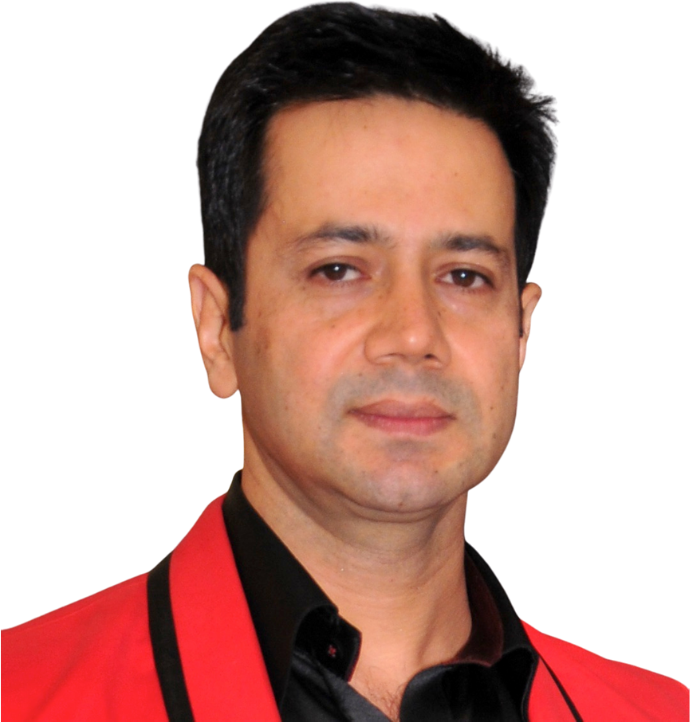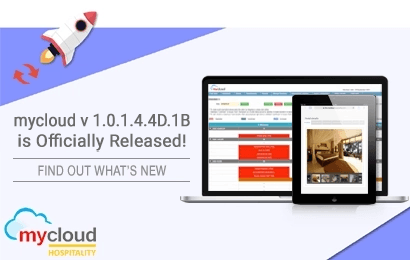The hospitality industry thrives on creating memorable experiences for guests while maintaining operational excellence and profitability. In today’s digital age, data collection is at the heart of achieving these goals. By leveraging the right data, hotels and other hospitality businesses can provide personalized services, streamline operations, and maximize revenue. Let’s explore how data-driven strategies can revolutionize the guest experience and transform the hospitality landscape.
What is Data Collection in Hospitality?
Data collection in hospitality refers to gathering, storing, and analyzing information from various sources to understand guests better and optimize business operations. This data encompasses a wide range of categories, such as guest preferences, booking patterns, feedback, spending habits, demographic details, and social media interactions, enabling tailored experiences and improved service delivery.
Guest Preferences: Guest preferences encompass specific details like dietary restrictions, preferred room types, special occasions, and activity interests. Understanding these allows hospitality businesses to provide tailored services, ensuring a more personalized and enjoyable experience for each guest.
Booking Patterns: This includes the frequency of guest bookings, the channels used (such as direct websites, OTAs, or third-party agents), and the typical length of stay. Analyzing these patterns helps hotels optimize marketing strategies, improve channel management, and predict occupancy trends.
Operational Data: Operational data includes metrics like occupancy rates, staffing levels, maintenance logs, and utility consumption. This data helps hotels optimize resource allocation, ensure smooth operations, and identify cost-saving opportunities, enhancing overall efficiency and profitability.
Key Sources of Data in Hospitality
Key data sources in hospitality, including PMS, customer feedback, loyalty programs, and IoT devices, empower businesses to deliver personalized experiences, enhance efficiency, and make informed decisions. Let’s explore some of the essential data sources.
Property Management Systems (PMS): Property Management Systems serve as centralized platforms for efficiently managing guest information, booking details, and operational data. These systems streamline operations, enhance guest experiences, and provide valuable insights for decision-making in hospitality businesses.
Customer Feedback: Customer feedback, gathered through surveys, online reviews, and direct interactions, provides valuable insights into guest satisfaction and highlights areas for improvement. This helps businesses refine services and enhance overall guest experiences.
Loyalty Programs: These programs monitor customer preferences, track stay histories, and manage reward redemptions, enabling businesses to foster guest loyalty through personalized experiences and incentives.
IoT Devices: Smart room controls and keyless entry systems collect real-time usage data, offering insights into guest behavior and preferences while enhancing convenience and operational efficiency.
Case Studies Illustrating the Application of Data Collection Tools
Case studies show data tools in action: AI enables tailored guest experiences; PMS supports dynamic pricing for revenue; IoT boosts operational efficiency; and loyalty programs enhance retention through personalized rewards, driving success.
- Enhanced Personalization with AI: A luxury hotel in New York uses AI-powered tools to analyze guest preferences and tailor their stay. For instance, recognizing a guest’s dietary restrictions enables the hotel to offer customized meal options upon arrival, delighting the guest and ensuring a seamless dining experience.
- Dynamic Pricing Strategies: A beachfront resort in Florida uses booking data to anticipate peak demand during spring break. By implementing dynamic pricing through its PMS, the resort adjusts rates based on demand, ensuring maximum occupancy while optimizing revenue.
- Operational Efficiency at a Business Hotel: A business hotel in Tokyo uses IoT sensors to monitor energy usage and occupancy rates. This data allows the hotel to reduce energy consumption during off-peak hours, significantly lowering operational costs without compromising guest comfort.
- Improved Guest Retention through Loyalty Programs: A boutique hotel chain in Europe leverages its loyalty program data to track frequent travelers. By offering personalized rewards, such as free upgrades or exclusive offers, the chain improves customer retention and encourages repeat bookings.
The Benefits of Data Collection for Hospitality Businesses
Effective data collection enables hotels to personalize guest experiences, optimize pricing, enhance operational efficiency, improve marketing strategies, and drive overall business growth. Here are some key benefits of transformative data collection.
Enhance Guest Experiences:
- Anticipating guest needs allows hotels to deliver personalized experiences, such as preferred room setups, dining choices, or special amenities, creating a more memorable and satisfying stay.
- By analyzing past guest behaviors, hotels can craft targeted promotions and packages, offering deals that align with individual preferences and increasing the likelihood of repeat bookings.
Improve Operational Efficiency:
- By analyzing occupancy trends, hotels can align staffing levels with demand, ensuring adequate service during busy periods while reducing unnecessary labor costs during low occupancy.
Increase Profitability:
- High-value guests are identified based on factors like frequent stays, high spending, or premium service usage.
For example, a luxury hotel may notice a guest who regularly books suites and spa treatments. By offering exclusive discounts or tailored experiences, such as a personalized concierge service, the hotel can strengthen loyalty and increase repeat visits, leading to higher revenue.
- Hotels analyze historical booking data to anticipate peak seasons, like summer holidays or local events.
For instance, a beachfront resort might see a surge in bookings during spring break. By implementing dynamic pricing, the resort can adjust room rates based on demand, ensuring maximum occupancy at higher prices, boosting profitability during these periods.
According to a report by McKinsey, businesses that use data-driven decision-making are 23 times more likely to acquire customers and 19 times more likely to be profitable.
Technological Tools Driving Data Collection
The hospitality industry has embraced advanced technologies to streamline data collection and analysis, driving efficiency and personalization. Here are some game-changing tools transforming the sector:
Hotel PMS: mycloud Hotel PMS integrates booking data, guest profiles, and operational metrics into a unified system, simplifying data management and providing actionable insights for enhancing guest experiences and efficiency.
Artificial Intelligence (AI): AI-powered chatbots and recommendation engines interact with guests in real-time, collecting valuable data on preferences and behaviors to deliver personalized experiences.
Big Data Analytics Platforms: These tools aggregate and analyze data from various sources to uncover actionable trends.
Challenges in Data Collection for Hospitality Businesses
Despite its benefits, data collection in hospitality comes with its own set of challenges, including data privacy and security, data overload, and managing integration complexities. Let’s uncover the challenges of data collection in hospitality businesses.
Data Privacy and Security: Protecting guest data is vital in the face of rising data breach concerns, and compliance with regulations like GDPR is essential. Hotel software, such as mycloud Hotel PMS, helps address these challenges by offering robust security measures, encrypted data storage, and compliance features to safeguard sensitive information and maintain guest trust.
Data Overload: The sheer volume of data can overwhelm businesses, making it hard to extract meaningful insights.
Integration Issues: Hotels often face challenges with disconnected systems that fail to communicate effectively, resulting in fragmented data silos and inefficiencies. Comprehensive platforms like mycloud Hotel PMS resolve this by seamlessly integrating various systems, ensuring centralized data management and smoother operations.
Best Practices for Effective Data Collection in Hospitality
Implement secure systems, comply with privacy regulations, use integrated tools, focus on actionable insights, and regularly update data processes. To overcome these challenges and maximize the value of data collection, hospitality businesses should adopt these best practices:
Invest in Integrated Solutions: Leveraging the Best Hotel Management Software allows hotels to consolidate data from multiple sources into a centralized system. This integration streamlines operations, improves data accuracy, and enhances decision-making, ensuring a seamless guest experience.
Prioritize Data Security: Ensuring guest data protection requires robust cybersecurity measures such as encryption and secure access controls, alongside compliance with legal frameworks like GDPR. These builds trust with guests and safeguards against potential breaches.
Focus on Relevant Data: To avoid data overload, hotels should concentrate on key metrics that directly support their business goals, such as occupancy rates, guest preferences, and revenue drivers. This targeted approach ensures actionable insights and efficient decision-making.
Train Staff: Ensure team members are equipped to use data tools effectively and understand the importance of data-driven decisions.
The Future of Data Collection in Hospitality
Data collections in the hospitality industry enables hoteliers to make informed decisions that enhance operational efficiency. By accurately forecasting demand, it improves the customer experience and increases profitability. The future of data collection in hospitality is poised for exciting developments:
Predictive Analytics: Advanced algorithms will enable hotels to anticipate guest preferences and behaviors with unparalleled accuracy.
Greater Personalization: With the integration of AI and machine learning, hotels will be able to deliver hyper-personalized experiences at scale.
Sustainable Operations: Data from IoT devices and energy management systems will help hotels reduce their carbon footprint while cutting costs.
How mycloud PMS Supports Data Collection
mycloud PMS is a leading solution designed to empower hospitality businesses through robust data collection and management capabilities. Here’s how it helps:
Centralized Data Hub: Combines guest profiles, booking information, and operational metrics into one platform, eliminating data silos.
Real-Time Insights: Provides actionable insights through intuitive dashboards, enabling quick and informed decision-making.
Personalization: Captures guest preferences and behaviors to help hotels create tailored experiences and targeted promotions.
Scalable and Secure: Offers a scalable solution for businesses of all sizes, with built-in security features to ensure data privacy.
Ease of Integration: Seamlessly integrates with other systems, such as payment gateways and CRM platforms, for a unified approach to data collection.
Conclusion
Data collection is no longer a luxury but a necessity for hospitality businesses aiming to stay competitive. From enhancing guest experiences to driving operational efficiency and profitability, the benefits are undeniable. However, navigating challenges like data privacy and overload requires the right strategies and tools.
By leveraging advanced technologies like cloud-based hotel management system, hospitality businesses can unlock the full potential of data collection, ensuring a brighter, data-driven future for the industry. Whether you’re a boutique hotel or a large chain, investing in robust data collection systems is a step towards sustained success in an increasingly digital world. Experience it for yourself—book a demo or start your free trial today!










